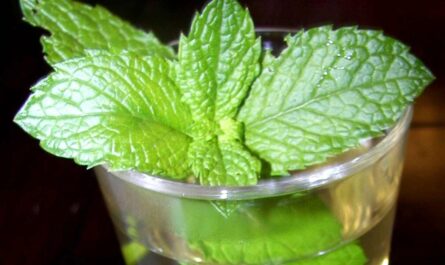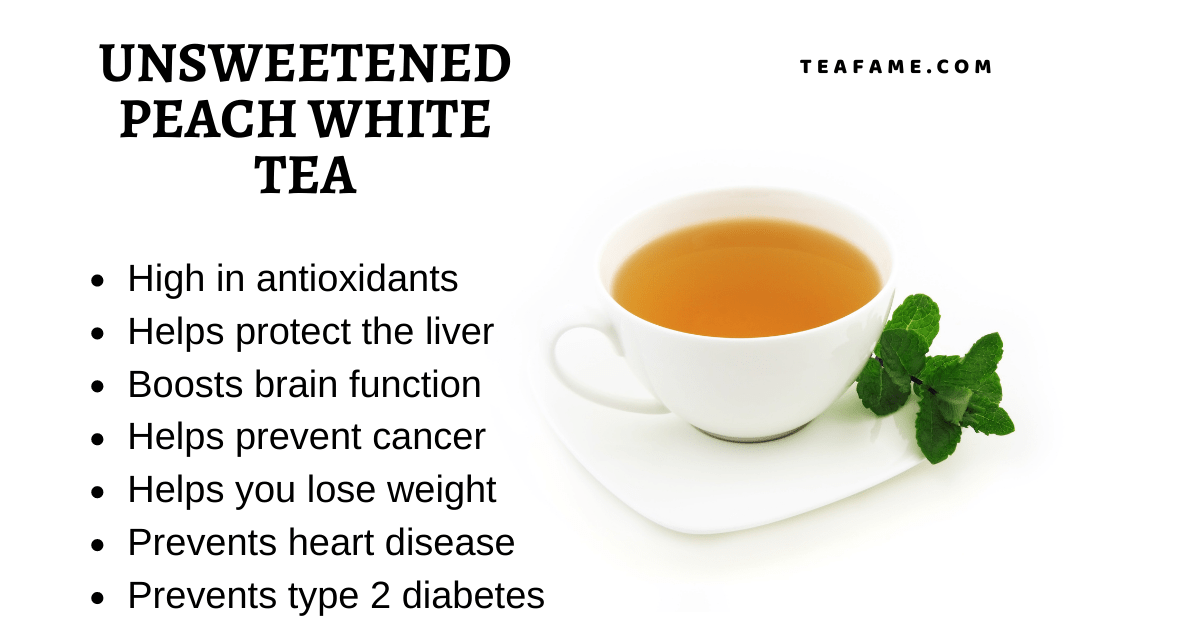What are some of Barley tea health benefits, nutrition, recipes, & side effects? Barley tea stands as a flavorful and nutritious beverage choice, steeped in history and brimming with health benefits. Its antioxidant-rich composition, coupled with vitamins and minerals, makes it a valuable addition to any diet. Whether enjoyed hot or cold, its versatility and refreshing taste appeal to a wide audience. With proper consideration and moderation, incorporating barley tea into one’s daily routine can contribute to overall wellness and enjoyment. In this article, we will share some of Barley tea’s health benefits, nutrition, recipes, & side effects. Keep reading.
Nutritional facts of Barley Tea
How much Barley tea to drink every day?
Barley tea, a popular beverage in many cultures, has gained recognition for its potential health benefits. It’s a refreshing drink made from roasted barley grains, often enjoyed hot or cold. But how much of this delightful brew should one consume daily for optimal health?
Recommended Daily Intake
Determining the ideal amount of barley tea to drink daily involves various factors, including individual health status, age, and lifestyle. Generally, experts suggest consuming about two to four cups of barley tea per day to reap its potential benefits without overconsumption. This moderate intake ensures you enjoy its flavor and health perks while maintaining balance in your diet.
Factors Influencing Consumption
Several factors influence how much barley tea one should drink daily. Firstly, consider your overall health and any existing medical conditions. If you have specific health concerns or dietary restrictions, it’s advisable to consult with a healthcare professional for personalized recommendations. Additionally, your age and activity level play a role in determining your daily beverage intake. Active individuals may require more fluids to stay hydrated, while older adults might need to monitor their caffeine intake.
Hydration and Caffeine Considerations
Barley tea, being a non-caffeinated beverage, can contribute to your daily fluid intake and help keep you hydrated. However, it’s essential to balance your barley tea consumption with other hydrating fluids like water to maintain optimal hydration levels. Furthermore, individuals sensitive to caffeine can appreciate barley tea as a caffeine-free alternative, making it suitable for consumption throughout the day without interfering with sleep patterns or causing jitters.
Listening to Your Body
Ultimately, the best gauge for how much barley tea to drink daily is listening to your body’s signals. Pay attention to how you feel after consuming barley tea. If you experience any adverse effects or discomfort, adjust your intake accordingly. Remember that moderation is key, and incorporating a variety of beverages into your daily routine ensures a balanced diet and hydration status.
What is the best time to drink Barley Tea?
Health benefits of Barley Tea:
The best time to drink barley tea spans the entire spectrum of the day, each moment offering a unique opportunity to reap its myriad benefits. Whether it’s the invigorating embrace of the morning, the refreshing respite of midday, the digestive harmony of the afternoon, or the serene tranquility of evening, barley tea seamlessly integrates into your daily routine, enriching every sip with its warmth and wellness. So, embrace the versatility of barley tea and let its comforting brew accompany you on your journey towards holistic well-being. Here are some of the health benefits of Barley tea:
How to Make Barley Tea
Barley tea, a beloved beverage in many cultures, offers a refreshing and wholesome alternative to traditional teas. Its unique nutty flavor and aromatic essence make it a delightful choice for any occasion. Whether you seek a comforting warm brew or a cooling iced infusion, barley tea stands ready to please your palate with its versatility and health benefits.
Ingredients for Barley Tea
- Barley: The star ingredient, barley grains provide the rich, toasty flavor characteristic of barley tea.
- Water: Pure and clean water forms the base of the tea, ensuring a crisp and refreshing taste.
- Optional Flavorings: While not essential, you can enhance your barley tea with additions like lemon slices, honey, or mint leaves for a personalized touch.
Proportions for Brewing Barley Tea
To brew a satisfying batch of barley tea, follow these approximate proportions:
- Barley: 1/4 cup of barley grains per 4 cups of water.
- Water: 4 cups, or 1 liter, of water per 1/4 cup of barley.
Steps to Make Barley Tea
- Rinsing the Barley: Begin by rinsing the barley grains under cool running water to remove any dust or debris.
- Toasting the Barley (Optional): For a deeper flavor profile, toast the barley grains in a dry skillet over medium heat until they turn golden brown and emit a nutty aroma.
- Boiling Water: Bring the water to a rolling boil in a pot or kettle.
- Adding Barley: Once the water reaches a boil, add the rinsed barley grains to the pot.
- Simmering: Reduce the heat to low and allow the barley to simmer gently for about 20-30 minutes, or until the water takes on a golden hue and the barley softens.
- Straining: Using a fine-mesh sieve or cheesecloth, strain the tea into a pitcher or teapot, separating the brewed liquid from the barley grains.
- Cooling and Serving: Allow the tea to cool to your desired temperature, then serve it over ice for a refreshing chilled beverage, or enjoy it warm for a comforting drink.
By following these simple steps and adjusting the ingredients to suit your taste preferences, you can easily create a delicious batch of homemade barley tea to savor and share with friends and family. How AI, ChatGPT maximizes earnings of many people in minutes
Side Effects of Barley Tea
Barley tea, a popular beverage in many cultures, offers a range of health benefits, but like any other consumable, it also comes with its share of potential side effects. Understanding these side effects is crucial for anyone considering incorporating barley tea into their daily routine. Let’s delve into the ten notable side effects that one should be aware of before enjoying a cup of this refreshing drink.
1. Possible Allergic Reactions
Some individuals may experience allergic reactions to barley tea due to their sensitivity to certain proteins found in barley. These reactions can manifest as skin rashes, itching, swelling, or even difficulty breathing. It’s essential to monitor any adverse reactions after consuming barley tea and seek medical attention if symptoms persist or worsen. Motivation – Mind – Success – Thinking – Productivity – Happiness
2. Interference with Medications
Barley tea contains compounds that might interact with certain medications. For instance, it could interfere with blood thinners, diabetes medications, or medications for high blood pressure. If you’re taking any prescription drugs, it’s wise to consult with a healthcare professional before consuming barley tea regularly to avoid any potential adverse interactions.
3. Digestive Discomfort
Barley tea, like other beverages, can sometimes lead to digestive discomfort, particularly if consumed in large quantities or on an empty stomach. Some individuals may experience bloating, gas, or mild stomach upset after drinking barley tea. Moderation and consuming it alongside a balanced meal can help minimize these effects. Business – Money Making – Marketing – E-commerce
4. Impact on Blood Sugar Levels
While barley tea is often touted for its potential to regulate blood sugar levels, individuals with diabetes or those on a diabetic diet should be cautious. Drinking too much barley tea may lead to fluctuations in blood sugar levels, potentially causing hyperglycemia or hypoglycemia. Monitoring blood sugar levels regularly is advisable for individuals with diabetes who consume barley tea.
5. Dental Health Concerns
Barley tea contains natural sugars, which can contribute to dental problems such as tooth decay and cavities, especially when consumed frequently or without proper oral hygiene practices. Rinsing the mouth with water after drinking barley tea or opting for unsweetened varieties can help mitigate these risks and protect dental health. Health books, guides, exercises, habits, Diets, and more
6. Risk of Iron Deficiency
Excessive consumption of barley tea could potentially interfere with iron absorption in the body. Barley contains compounds called phytates, which can bind to iron and inhibit its absorption. This could pose a risk for individuals who are already at risk of iron deficiency or anemia. Ensuring a varied diet rich in iron-containing foods can help offset this potential side effect.
7. Impact on Pregnancy
Pregnant women should exercise caution when consuming barley tea due to its potential effects on pregnancy. While barley tea is generally considered safe in moderation, excessive intake may pose risks, including miscarriage or preterm labor. Pregnant women should consult with their healthcare provider before adding barley tea to their diet. Fitness – Meditation – Diet – Weight Loss – Healthy Living – Yoga
8. Oxalate Content
Barley tea contains oxalates, naturally occurring compounds found in many plant-based foods. High levels of oxalates can contribute to the formation of kidney stones in susceptible individuals. Those with a history of kidney stones or a predisposition to their development should consume barley tea in moderation and ensure adequate hydration to reduce the risk of stone formation.
9. Caffeine Sensitivity
Although barley tea is caffeine-free, some commercial varieties may contain added caffeine or be blended with other caffeinated ingredients. Individuals sensitive to caffeine should be mindful of the type of barley tea they consume to avoid potential side effects such as insomnia, jitteriness, or increased heart rate. RPM 3.0 – 60% CONVERSION & Money for Affiliate Marketing
10. Environmental Contaminants
Lastly, the quality of barley tea can be influenced by environmental factors, including agricultural practices and processing methods. Contaminants such as pesticides, heavy metals, or mold toxins may be present in low-quality or improperly processed barley tea. Choosing organic or reputable brands can help minimize the risk of exposure to such contaminants.
Conclusion: Balancing Benefits and Risks
Enjoying two to four cups of barley tea per day can be a delightful addition to your beverage choices, offering a caffeine-free option with potential health benefits. However, individual needs vary, so it’s essential to consider personal factors and listen to your body’s cues when determining your daily intake. By incorporating barley tea into your routine mindfully, you can savor its flavor and reap its potential health perks responsibly. Tea, Coffee, Energy Drinks, Juice, Beverage, Smoothie, and more
While barley tea offers numerous health benefits, it’s essential to be aware of its potential side effects and consume it in moderation. Individuals with specific health conditions or concerns should consult with a healthcare professional before making barley tea a regular part of their diet. By balancing its benefits with potential risks and taking necessary precautions, one can enjoy the refreshing taste of barley tea while safeguarding their health.
Other Interesting Articles
- 21 Health Benefits of Chai Green Tea: Recipe, Side Effects
- 22 Proven Health Benefits of Drinking Milk Daily At Night
- Hidden Disadvantages of Drinking Milk for Skin: 11 FAQs
- 22 Chai Tea Health Benefits, Recipe, Time, Side Effects
- 22 Milima Tea Health Benefits, Recipe, Time, Side Effects
- 22 Irish Breakfast Tea Health Benefits, Recipe, Side Effects
- 20 Rukeri Tea Health Benefits, Recipe, Time, Side Effects
- 19 Darjeeling Black Tea Health Benefits, Recipe, Side Effects
- 19 Panyang Congou Tea Health Benefits, Recipe, Side Effects
- Black Tea vs Milk Tea: 15 Benefits and 10 Side Effects
- 20 Side Effects of Drinking Ginger Tea in Empty Stomach
- 20 Silent Disadvantages of Drinking Milk with Turmeric
- 24 Benefits of Drinking Milk Everyday During Pregnancy
- 20 Hidden Disadvantages of Drinking Lemon Water Daily
- Black Tea vs Normal Tea: 15 Benefits and 10 Side Effects
- Best Time to Drink Milk: Seniors, Adults, Weight Loss, Muscle
- 21 Keemun Tea Health Benefits, Recipe, Time, Side Effects
- 10 Great Health Benefits of Drinking Hot Tea in the Morning
- 23 Lapsang Souchong Tea Health Benefits, Side Effects
- 21 Probable Disadvantages of Drinking Tea in Paper Cups




